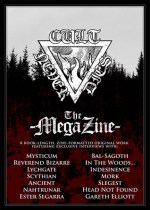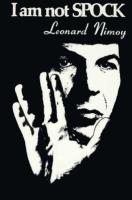But I’m not because Doctor McCoy is right in pointing out the enormous danger potential in any contact with life and intelligence as fantastically advanced as this. But I must point out that the possibilities, the potential for knowledge and advancement is equally great.
Risk.
Risk is our business.
That’s what this starship is all about.
That’s why we’re aboard her.
– Captain James T. Kirk, Star Trek TOS ‘Return to Tomorrow’
Watching sci fi, then and now
I watched scifi tv-shows and read fantasy. As a small boy, my options were limited and from a very young age onward I enjoyed whatever was available. Some of it, admittedly, was pretty horrendous. As the amount of tv-channels expanded, I was able to watch dinner-time tv-shows like Xena, the X-files and Angel at some point. You can tell from the titles I’m listing, that it wasn’t all gold at the end of the rainbow.
Now, many years later, the choice is endless. It’s amazing how many shows are available and some of it is really good. I was really excited about a show like Stranger Things for example. Revamps hit the screen, like there’s no limit to available budgets and potential comebacks. That is clearly not always worth your time either. Even the new Star Wars films apparently rely on paper thin storylines and badly suggestive futurism (I have to add that I think Star Wars by now hardly fits underthe sci-fi umbrella, since it has really become knights in space). So what is it, that makes sci-fi attractive? Why is an episode from, what has become my favorite, Star Trek , so much more on point? Why are you on the edge of your seet for the X-files? What makes Asimov’s books still superb?
The three pillars of sci-fi
There’s probably enough written about what makes something sci-fi, but I’m more concerned with what makes it work. For that, I’m relying on a speech by the one and only Capain James T. Kirk. Granted, I grew up in a time, when Star Trek was Jean Luc Picard, but watching the show as a kid on the BBC at a very young age, was what made me fall in love with it (even though I understood little).
It’s about the potential, the possibilities and, obviously, the danger.

The potential
One of the key elements of scifi, is its ability to show the potential of what we can be as human beings. Not just that though, it can show us a tiny thought and then inflate it to enormous proportions. It starts with a very simple, basic thought. A suggestion if I may, like the idea of a non-violent society that seeks harmony. Not such a far-fetched idea, we have plenty of examples in our world even. But what if you really let the potential of that sink in. Not the half-arsed attempts that we see in our modern-day politics, but the fully expanded, enormous potential of the United Federation of Planets. What could it mean, if there was a vast conspiracy to hide alien life from us? What potential do interstellar gateways have for us? What if artificial intelligence can truly be achieved?
These are not just phantasms, these are ideas that already exist, which are taking shape as you are reading this (well, you know what I mean). That’s where the potential lies, in these suggestions, humble beginnings we can instantly relate to. Because that’s what this starship, gateway, android a galactic empire and so forth is all about. It’s why they are there, to allow our minds to explore the potential of our ideas.
The possibilities
You would think that the potential and possibilities are the same, but the potential works through in the imagination of the receiver. To help that along, you need to show the possibilities. For example, Star Trek shows the concept of an intellectual, advancement-pushing civilization that seeks to coexist. That is the meta-narrative, the big idea, but what does that entail? It would be easy to simply shrug and say ‘if only it could be!’ and go on with your life. You need the possibilities, the concrete elements to help you along. What if you could make a machine that replicates whatever you need from basic materials? What would that do? If we could travel at warp speed, where would that lead us and if we could predict the future, where would we end up. Is artificial intelligence life too, but what does it even mean then to be alive?
Questions, that allow us to grapple with the very real consequences of realizing the potential. This is a key element of science fiction because it makes it fully tangible for us. Not just abstract idealisms or imagination, but very concrete examples. This is what makes it fully real to us.
Risk
As said by the exceptional Captain Kirk, the risk is our business. It’s in that boldly going where no one has gone before and even ‘may the force be with you’ has a taste of diving into the unknown to it. Risk or high stakes make it worthwhile, it gives meaning to the story and actions of the characters and gives tension to the experience for you as reader or viewer. It can strangely be in the small things. Star Trek was always a very human series, with analogies to reality taking place in the episodes. Sometimes the whole stream of time is at stake, other moments it is about one single life.
Whatever scifi you check out, if there is no stakes, there is no adventure. If there is no meaning, why would you watch? It may seem redundant info, but nonetheless one of the essential elements.
So keep going beyond…
… keep exploring new things and discovering new stars and let the beauty of this genre of fiction inspire and bewilder you. It’s not without reason we have certain inventions now, that was conjured in tv studios or on typewriters in the past. It’s because people boldly envisioned the possibilities and potential of the future and reasons why we needed to explore those. Risk of confinement perhaps? Anyways, keep dreaming!











